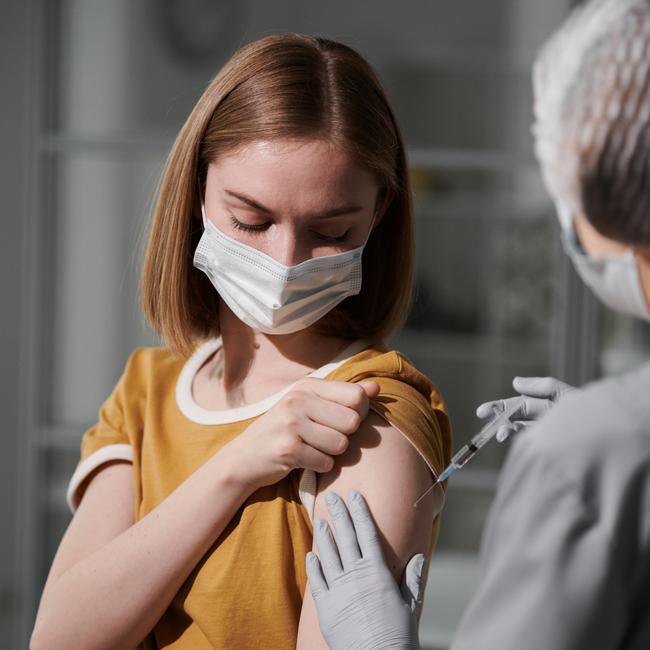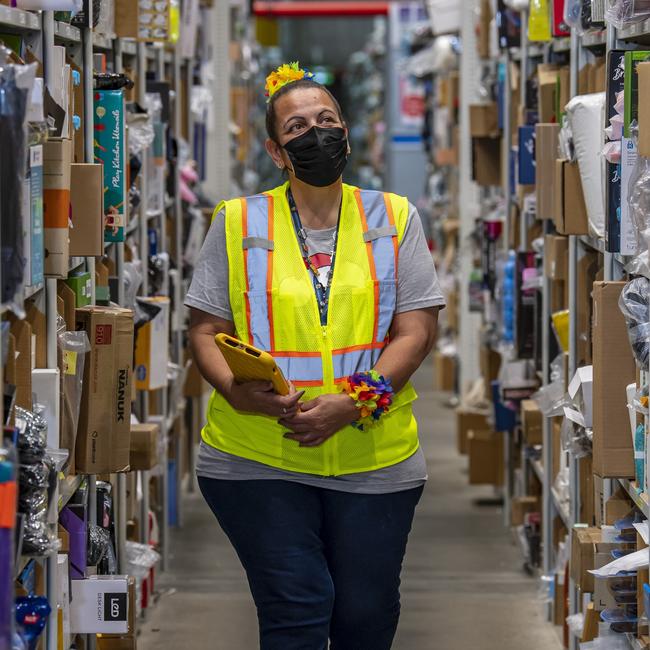Know your rights: How Aussie workers can refuse going back to the office
A legal expert reveals when a worker can (and cannot) refuse to return to the workplace amid the Omicron outbreak. SEE ADVICE
More than two-thirds of Australians are worried about catching Covid at work, as Omicron cases continue to surge across the nation.
New research by HR software company ELMO shows Omicron is causing considerable fear among workers, with 69 per cent concerned about returning to the workplace.
ELMO’s latest Employee Sentiment Index also reveals three-quarters (76 per cent) of Australians want vaccination mandates at work, while 67 per cent feel uncomfortable working alongside unvaccinated colleagues.
Employment law experts say all workers have the right to refuse to return to the workplace if they feel unsafe but warn this is not as simple as it sounds.
KNOW YOUR RIGHTS
Industrial law barrister Ian Neil SC says it is virtually impossible to eliminate the risk of Covid at work and the right to refuse to work is “heavily qualified”.
“In the end, of course, an employee is not entitled to avoid coming in forever and still (be guaranteed of) having their job,” he says.
“There needs to be a sound, objective reason about why they feel unsafe. That’s probably not going to be, ‘Look, there’s a lot of people that work there’ – it has to be something more than that.
“Suppose the workplace is crowded, unventilated or poorly ventilated, or people work in close proximity to one another and no efforts were made to deal with any of those matters … then employees would be entitled to say this is not a safe place so I’m not coming in.”

Neil says ACTU (Australian Council of Trade Unions) calls to provide workers with free rapid antigen tests, N95 masks and improved ventilation in the workplace would help “discharge an employer’s duty” to provide a safe workplace, as would vaccine mandates.
But despite the best of intentions, “there’s almost no measure that could be introduced at a workplace that will void the risk of transmission altogether”, he says.
DON’T MAKE ASSUMPTIONS
Workers can be directed to return to the workplace where employers have taken steps to eliminate, or at least minimise, the risks of Covid, University of Sydney employment law expert Dr Guiseppe Carabetta says.
“If the employee then refuses (to return to work), they can be disciplined for this including, ultimately, dismissed,” he says.
“The only exception will be if the particular job in question exposes the worker to a serious risk under WHS (workplace health and safety) law. Questions that may be tested here might include whether working in close proximity to unvaccinated workers poses such a risk.”

PROTECT YOURSELF
People in New South Wales, which has recorded more than a million Covid cases since the pandemic began, and Tasmanians are the most anxious about returning to work.
Research by Rentokil Initial shows 28 per cent of workers in Tasmania and 27 per cent in NSW believe they are “highly at risk” of being exposed to the virus in the workplace.
Professor Bruce Milthorpe, former dean of science at University of Technology Sydney, says being triple-vaccinated, practising good hand hygiene, wearing a mask indoors and avoiding extended periods of time where there are large groups of people can reduce the risk of Covid transmission.
He suggests face shields, as well as masks, should be worn for customer-facing roles and, if workplace ventilation is poor, then air purification should be considered.
“If you are indoors and can’t feel a light breeze from the airconditioning then you could be in a high-risk area,” he says.
‘I KNOW THAT I CAN VISIT MY ELDERLY MUM’
Annette Davey feels safer at work than anywhere else, thanks to strict Covid-safe measures in her workplace.
She worked as a learning ambassador at Sydney’s Amazon Fulfilment Centre for three years before moving into a full-time Covid-19 marshall role with the online retail giant late last year.

Since the start of the pandemic, Amazon has implemented a 2m social distancing policy, with artificial intelligence technology used to indicate whether workers are maintaining a safe distance from one another.
Thermal screening at the centre’s entrance checks the temperature of workers and there are also strict mask protocols.
Posters throughout the building remind workers of Covid protocols, while two weeks of paid annual leave is provided to staff who are diagnosed with Covid or are required to isolate.
“I can honestly say I feel safer at work than I do sometimes outside of work,” Davey says.
“I’ve actually stopped going into the supermarkets and buy my groceries online now and have them delivered as I’d noticed that there were many people not wearing a mask or keeping a social distance and this made me feel really nervous.
“It’s really important for me to feel that my health and wellbeing is being looked after at work so that I know that I can visit my elderly mum and also my friends safely.
“I’m also conscious of keeping myself safe so that I can visit my grandkids, who live a few hours away from me, so it’s important that these visits are not interrupted by Covid.”
More Coverage
Originally published as Know your rights: How Aussie workers can refuse going back to the office




